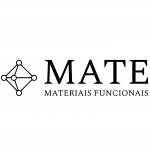Functional Materials Group – MATE Thin Films and Surface Laboratory (LFFS)
The Functional Materials Group (MATE), formerly the Laboratory of Thin Films and Surfaces (LFFS), is currently dedicated to the research of new materials to develop innovative energy-focused strategies. The group’s main research lines involve the synthesis and characterization of materials such as Prussian blue, bismuth selenide, and perovskites, with applications in the development of batteries and supercapacitors, photovoltaic devices, resistive switching, and spintronics. In recent years, the study of materials applied to battery electrodes has stood out, resulting in master’s and doctoral theses, as well as patents. MATE’s research aims to understand physical phenomena in thin films composed of metals, semiconductors, and topological insulators.
The laboratory has extensive infrastructure for the development of materials through evaporation and chemical synthesis methods, with a focus on electrodeposition. Additionally, the group has access to equipment, both owned and shared, for the structural, optical, and electrical/magnetic characterization of the produced materials. The group’s growth has been supported by funding agencies such as CNPq, CAPES, FINEP, FAPESC, and IHR, which have provided financial support for equipment, supplies, and scholarships.
Founded on February 8, 1994, by Professor André Avelino Pasa, the LFFS was initially created to establish a research area focused on the study of solid material surfaces within the UFSC Department of Physics, and to expand this research to thin films, aiming at future applications in microelectronic devices. Over the years, the laboratory has been involved in various research projects and has trained dozens of master’s and doctoral students, as well as undergraduate research students. Currently, the group also includes Professors Cristiani Campos Plá Cid (current coordinator) and Deise Schafer. The laboratory is certified and is associated with research groups from CNPq.






